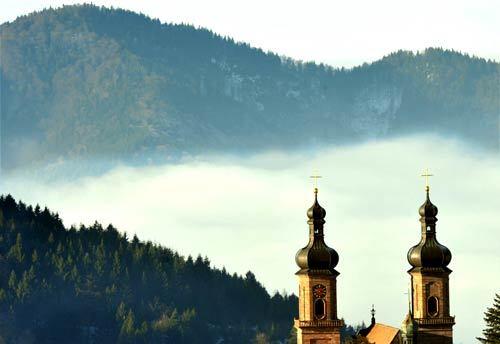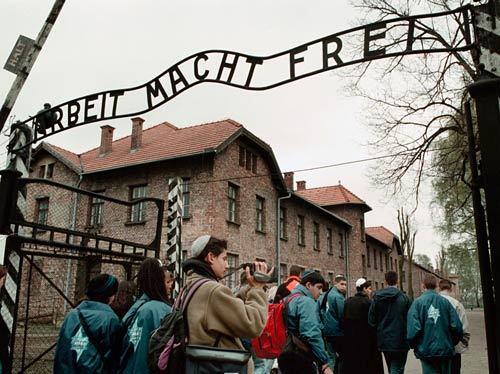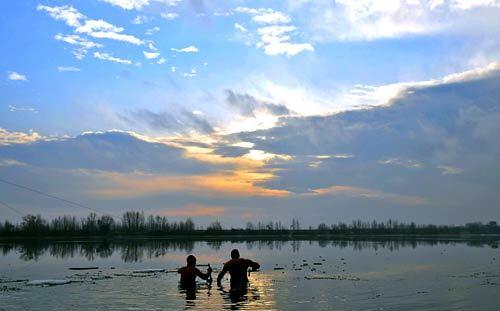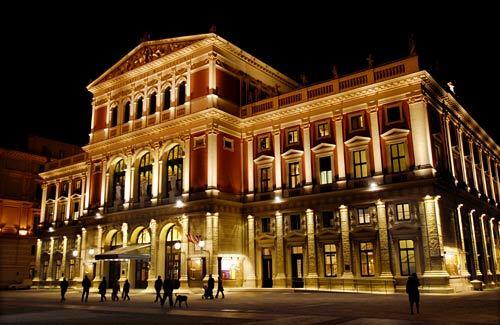Photos: One family’s RV trip through Europe

Our campsite alongside the beginning of the Danube River in the Black Forest, in the shadow of a towering granite bluff, is reminiscent of Yosemite, very tranquil. But the mobi is developing problems.
The lock on the side door breaks. We can lock it from the outside but not inside. So from now on, at night, we secure the door shut with bungee cords. If someone breaks in, he’ll think someone is fighting him.
We have to dump our sink-water tank at the service bay behind the camp store, but when I turn the valve, it just spins in useless circles. Apparently our waste water has been draining every time we use the sink. That’s why our camp site is so wet. Our mobi can’t hold its water.
Pictured: St. Peter monastery in the Black Forest (Rolf Haid / EPA)

In Poland, we camp about a quarter-mile from the front gates of Auschwitz, at a quiet hotel and campground operated by a Catholic organization as a retreat center for people needing to talk about
What I find most depressing about Auschwitz, more than all the baby shoes, the luggage, the bales of women’s hair, the single candle flickering in the gas chamber, are the black-and-white photographs of the men. It’s their eyes. Some are filled with despair or resignation. Some look stunned, bewildered, confused. Some look defiant and angry.
We head for Krakow, Poland, and the GPS sends us down a highway that abruptly ends. We go into a market, seeking directions. One man speaks English, and he shares our question with the clerk and a line of customers. Everyone starts offering different advice on the best way to Krakow. The man shrugs. “Just follow me,” he says. We drive three miles to a traffic circle. He waves us off on the third exit. We toot horns.
Pictured: Auschwitz concentration camp (Jockel Finck / Associated Press)

By plane to Vienna and then by train across the border, Kurt joins us in Bratislava, the capital of Slovakia. We’ll have lunch in old town and pay attendants at a dirt parking lot large enough to handle the mobi. As always, I take my laptop with me in my backpack, but Kurt leaves his behind. He’ll never see it again. Cassie’s jewelry will be gone too, but whoever broke into the mobi while we were eating lunch doesn’t take our iPods, hidden cash or other valuables.
It’s not clear how they got in. Maybe they jimmied the front door. Maybe the thieves were in that motor home next to us and used a device to record the key fob’s signal, and replayed it. What if I forgot to lock all the doors?
This night, at our campground in Vienna, Kurt and Cassie are standing in front of the mobi. She is looking up at him, and her eyes are wet -- and smiling. Now she’s embracing and kissing Kurt, then stepping back and looking at him again with eyes of joy. Kurt is proposing to our daughter.
Vienna is a beautiful city with spacious parks, magnificent monuments and stately buildings. But I’ll always remember the campground.
Pictured: Bratislava (Samuel Kubani / AFP / Getty Images)

In Vienna, Cassie’s radar finds a
Pictured: Musikverein music hall in Vienna (Samuel Kubani / For The Times)



